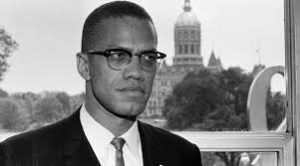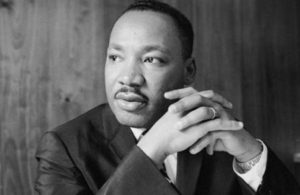Table of Contents
The Story
I have always placed a given a great deal of thought on how language is both shaped by our thought and shapes our thought. As someone with a degree in Spanish, all foreign language fascinates me. Lately, though I have been thinking about my native tongue, English. With the current presidential language around race, Brexit, and general awareness of racism or white supremacy, I have been paying close attention to the wording of phrases. At this same time, I have joined a Facebook class of sorts around theologies generated outside the norm, white male. We have read theologians like James Cone, Rosemary Radford Ruether, and Martin Luther King Jr. As I have read these thinkers I am drawn to the realization of how marginalizing we, white males, can be. I have always thought very highly of women, so it is easy for me to grasp and hear their teachings. I have not, however, had the opportunity to interact with great black thinkers. My studies have given me the ability to interact with the great Latino thinkers, but oddly not in the realm of theology. In the end, I have been wondering how foundational this white supremacy is?
My conclusion is that it begins with our language. White supremacy is so very foundational in thinking that is found, supported and even extended through my native tongue English. This took some time to wrap my head around, so I will give you the English grammar rules first. Let the statement that “English is white supremacist” sink in.
The Rules of The English Language
English has a very strict adjective listing rule. Most of us native speakers don’t even realize there is a rule. In “The Elements of Eloquence” by Mark Forsyth lays out the rules plainly. “Adjectives in English absolutely have to be in this order: opinion-size-age-shape-color-origin-material-purpose Noun.” This is the order by which we describe things. If you don’t order things in this way any native English speaker will think something is very wrong with you or immediately know that you are non-native. We also use this order of adjectives to convey slightly different meanings. You can convey a wide variety of meaning through the order of your adjectives, perhaps most importantly is that opinion which comes first.
What this tells us is that English, which also reads from left to right, places the most important words first. The things that I want you to notice first are the first adjectives used. My opinion is the first thing you should notice about any noun. Then the size, age, shape and color help provide context or what we think you might notice first. By listing adjectives in this way, we are answering the questions, “what makes that noun distinguishable to me and what might make it distinguishable to you?” Then we move on to more obscure descriptors that we may or may not know, origin and material. Not every noun’s origin or material is readily apparent. So those descriptors get pushed to the back because we could be wrong about in our assessment. We don’t want our hearers to think we are stupid, so we hide that information in the middle or toward the end of our description. After all, if you are looking for an immaculate, large, old, square purple brick house. You would probably stop once you have found a house matching the earliest set of adjectives, regardless that the house is in fact mostly wooden and not brick. We simply won’t remember the later adjectives.
What order reveals
The first words are the most important from the speaker’s/writer’s perspective. We will use the speaker from here on out, though the points apply to both the writer and speakers. This reveals a great deal about the speaker. It tells us what is most important to them. It also informs us about the hearer. If they receive the order of the adjectives then they also agree with the speaker. How do you know they receive the order, most often it is a facial expression or they reply with the same order?
We can now use these basic rules to analyze our language surrounding race.
Applying the rules
Applying the rules of adjectives to race is simple. We must simply break down any race such as an African American person. So what rule does the African and American fall under. Well, African clearly is attempting to indicate origin. You were at some point from Africa. This is an interesting descriptor because should you follow evolutionary theory every human originated in Africa. We are all in some sense African. This African descriptor is applied to anyone who is black in skin color. Regardless of how many generations it has been since your ancestors left Africa and regardless of how much African ancestry you have. At least 1% of African Americans are 51% or greater White Europeans.1 So, if we are using “African” as a descriptor of skin color, black, we are using our language poorly because the adjective “African” is a place of origin or perhaps even material. That’s not what I think is going on here though.
The interesting thing is that both African and American describe origin. As discussed earlier the order of adjectives places the most important thing first. So, when we say “African American” we are saying you are African before American. This is a subtle way of degrading many black people. It is, in a sense, calling them un-American. They do not deserve the same rights and privileges as we, true (or white) Americans. That is the subtly of our language. We are calling black people un-American so that we do not have to treat them as equals or at least we do not have to reckon with the harshness of race relations. The subtle thinking goes like this, “They are African, so they were not here during slavery or Jim Crow, so I owe them nothing. In fact, they are not even real Americans, like me, so I do not even have to treat them with the dignity I would other Americans.”
White Supremacy
This dangerous thinking might first be called anti-Black, but we, Whites, do it to every other race and creed. They are Asian American, Latin American or most interesting Native American as if Native Americans were not the truest of Americans. This language is not anti-Black. It is white supremacy. Oddly enough Great Britain, the founders of our language, is having a similar experience with Brexit. They too are trying to expel those who are non-Britain or other. Our language is having serious outcomes in all areas of life. Even the Church does White Theology as prominent Black Theologian James Cone has pointed out.2
Now I do not know if this language alteration was on purpose or rather occurred for a variety of reasons. My guess is that it is for a variety of reasons. However, this language was cemented after the Civil Rights movement. We can see two of that movement’s most prominent speakers using different language to describe the American Black. By looking into how they self-described the Black person we can gain some insight into what happened and what we can do.
What happened?
In the Civil Rights movement, there we are a variety of self-describing narratives. However can focus two that seem to be at the forefront of the conversation, Malcolm X and Martin Luther King Jr.

African American
Malcolm X worked to restore the African-ness that Black Americans had lost in slavery. They lost their culture through systemic and systematic separation of family and destruction of culture while replacing that culture with White Christianity. It is no wonder Malcolm X became Muslim. Malcolm X’s recovery of the African heritage is a noble goal, but it ignores much of the shared history the races of the United States. Malcolm X was a key contributor to the language of African American for in his mind all Blacks were African in origin. Do black people deserve to recover their ancestral roots? Of course! Malcolm X was instrumental in this recovery.
However, it is my opinion that this recovery is has prolonged the racial tension. White people have used this same language to recover their own ancestry and thus shift any blame in racial tension. White people were able to similarly become Polish American, Irish American or some other form of European American to claim their “late” arrival to racism. Here is a quote from Matthew Jacobson:
“This blunted the charges of the Civil Rights and Black Power movements and eased the conscience of a nation that had just barely begun to reckon with the harshest contours of its history forged in white supremacism.”3

American Negro
Now the other major competing narrative working for Civil Rights was that of Martin Luther King Jr. MLK used language to redefine what is to be American. He used the language of American Negro or Negro American often. The terminology Negro American invited people to view themselves as American in full equality and origin. It pushed the word “Black” or “Negro” out of the “origin” category in our adjective list. MLK Jr. allowed for Negro to be the color (the adjective preceding origin) of the people.
More often though he used the terminology of American Negro. This is important for two reasons. First, it pushes Negro to that of the secondary marker. This means we should see all Black people as American first. This means we should primarily treat them with the respect and dignity of the American people, regardless of color. This distinction alone is highly beneficial. However, it becomes even more compelling. By pushing Negro to behind American, the word Negro becomes a material descriptor. This allows for Blacks to retains their “blackness”. We are all, materially, the sum of our experiences of which skin color plays a part. To give an example of what I am talking about let me use something besides race. As an American Southerner, there is much that goes into my material that is Southern from sweet tea to that southern drawl to white privilege. There is no denying my southern material.
It is important not to strip the experience that is uniquely Black from anyone who does not wish it. Thus, the descriptor “Negro” coming second allows for that retention without it clouding our judgments about a person. Dr. King’s terminology allows for us to create a unity of countrymen and women while retaining our own history and traditions as Malcolm X fought so hard for. These men spoke about, lived through, and fought for Civil Rights 50 years ago. What is happening today?
Today
Today, the way we use English is racist. The language itself is not inherently racist, but because we focus on race before many any other origin we force English to be racist. This has a great variety of consequences in our world today. White Supremacy is alive and rampant. It will not be killed while our very language gives people the ability to find themselves superior to the other races. It will not be killed because it is so very fundamental to the way we even tell stories about ourselves and others. We can have no equality when the language we use breeds inequality in our minds, hearts, and even our very souls.
So, what can I, a white man, do? Well, there are two things. The first is to become aware that there is a problem. I have done this in the article providing a structured outline a relatively short history on how the problem arose. The second is to listen. By listening I can accomplish two things. I empower the other races to better self-define. They are even advocating for such things now. Here are two (one and two) articles in which the discussion is happening. Beyond empowerment, I learn their story and then can begin to use language that breeds equality. In the articles I linked, the authors advocate for the language of Black American. This language makes sense to me from a linguistic perspective. It reclaims “America” as the sole origin and recognizes the shared history of Blacks and Whites and moves “Black” to the adjective of color.
Finally, there is the nuance exposed by Trevor Noah. Trevor Noah a prominent African American comedian recently gave a thoughtful response about how important it is for him to be able to claim his African heritage. Since he was born in South Africa this makes sense. He is truly African American because Africa accurately describes his origin. We cannot lump in all Black people into a singular linguistic category. I think Noah has a point to retain his heritage and if he wishes to express it as being African American. It makes sense. However, it would be my suggestion that he and all who do recognize themselves as African American realize they do not share in the same shared history as Black Americans, American Blacks, American Negroes or Negro Americans. The distinguishing language is important to retain only if on a rarer basis. It is my suggestion that common parlance becomes something else. Here are Noah’s words below. You would be remiss not to spend the time to listen to his words. Noah strikes at the difficult nuance of the situation.
What do you think? Reflect on your own racial language. If you are white, would you prefer to be called a White American or European American in the same way we call black people Black American or African American? When I reflect on my being referred to White or European American, it rankles my sensibilities. I am advocating that we rethink the basic assumptions we all have around race and language. Sometimes the only way to fix tensions is to start from the foundation. Our language, English, is our foundation. Join me next week to look at the difference between American Christian and Christian American.
TL: DR
The way we use English today is often White Supremacist. In many cases, it is outright racist. We need to give serious thought to how we speak and how we are teaching younger generations to speak. As Jesus said, “Out of the abundance of the hear the mouth speaks.” Luke 6:45 NIV



